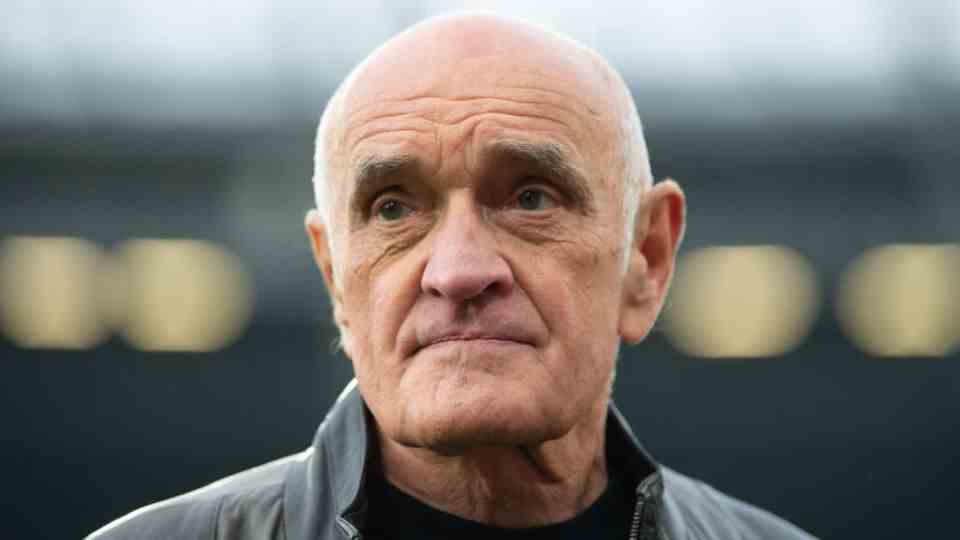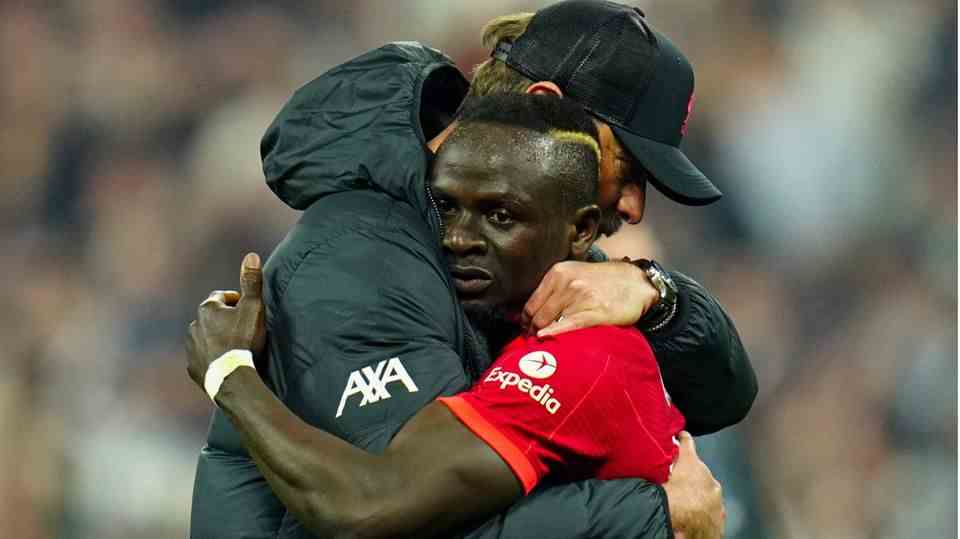opinion
Hannover 96
Martin Kind: The Fall of the Sun King
A power struggle between the fans and Martin Kind had been smoldering at Hannover 96 for a long time
© Swen Pförtner / DPA
For years, a power struggle smoldered at Hannover 96. Now Martin Kind, until then the strongman of the club, has been surprisingly dismissed. The fall of the Sun King from the Maschsee is a radical step – but it was overdue.
When you walk down Robert-Enke-Strasse in Hanover, you realize what the word “life’s work” was originally invented for. The Hannover 96 stadium, the entire infrastructure, none of this would have been possible without Martin Kind. Kind has invested millions in the club, at least established it in northern Germany. 96 has become a brand, just as the majority shareholder envisioned.
Viewed from the outside, one might think that it would have been a long time to erect a monument to the hearing aid manufacturer. For his commitment, his investments and above all his loyalty. Kind has worn himself out for the club for more than 20 years and yet his dismissal as managing director of the professional company seems less like a ride into the sunset and more like the overdue fall of a king.
Martin Kind Deposed: The Fall of the Sun King
It is largely thanks to Martin Kind that Hannover 96 still exists today and is even structurally well positioned. Without his money and his connections, professional football would probably not have been played in the Lower Saxony capital for a long time. The problem with this: Kind was always very aware of this and drew the wrong conclusions from it.
Through his commitment and his financial possibilities, he always saw himself as the one who has the right to decide what should happen to the club. And so he went from being a loyal financier and fan to the sun king of Maschsee. As is usual in a monarchy, as long as the king is benevolent and the subjects are well, no questions are asked. And as is usual for a monarch, at some point he wants more.
Child always wanted more. He wasn’t the first and certainly won’t be the last to try to buy power in football. This becomes problematic when the rabble no longer agrees with the king.
At 96, Kind did what made him successful: he ran the club as a company. And not without success for several years. But he forgot that football is a team sport, even at management level, and that members of a club – unlike his company – have a say.

Martin Kind was the strong man at Hannover 96 for more than 20 years. Now his era is coming to an end – for the time being.
© Swen Pförtner / DPA
From this point at the latest, the relationship between the subjects and their king probably tipped over. Kind wanted to overturn the 50+1 rule in order to be the sole ruler. Without annoying votes, without contradictions. The mob had to come to the stadium at the weekend and generate sales, the monarch wanted to take care of everything else himself.
Child has long since lost contact with the base
The sale of various departments, attracting investors to pump more money into the team and ensure the necessary success – all understandable for an entrepreneur. But not for those who give their last shirt for the club and bleed for the colors black, white and green. Kind has long since lost that connection to the base.
And so the power struggle between king and people smoldered for years. The one who was decried as a football romantic, the other who, as a full-blooded capitalist, would have crammed so much money into the club’s throat that the whole of Europe would finally know exactly where Hanover is.
Hannover 96 owes a lot to King Martin. And yet this relationship ends up feeling like a 25-year misunderstanding. We know from the history books that in the end the will of the people always prevails – regardless of whether it benefits from it or perishes.


